Why investing in soil makes good business sense
Meet Tegan Nock, Australia’s golden girl for soil health and co-founder of Orange-based startup, Soil Carbon Co. Tegan is empowering farmers to boost soil carbon, using microbial technology, which could help sink billions of tonnes of carbon and offers a tradeable commodity.
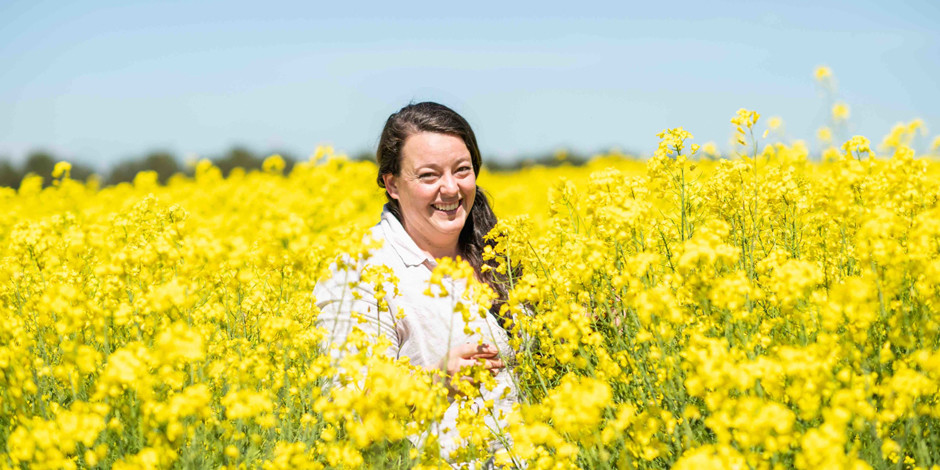
Photography by Pip Farquharson
Did you know a teaspoon of soil contains more microorganisms than there are people on the planet?
Yet, most of us probably don’t give much thought to what’s beneath our feet – a living breathing habitat for billions of organisms, which form soil organic carbon and provides the environment for our food to flourish.
Experiencing soil carbon losses of up to 60% in croplands globally, according to the IPCC 2019 report, and an excess of C02 (416 parts per million) recorded in our atmosphere this year directly threatens our future food production.
Tegan Nock, co-founder of Orange-based startup, Soil Carbon Co, greets this challenge with optimism and a talented team of farmers, world-leading soil scientists and entrepreneurs by her side.
“The development of new technologies and practices are important to alleviate impacts of the environmental pressures that agriculture faces,” Tegan said.
Tegan’s understanding of agricultural systems runs deep, and she has carried on the family tradition – near Bogan Gate in NSW’s Central West region – starting her own Angus cattle herd at 17 years old, just like her grandmother who bought her first Angus cows when she was a teenager.
Her interest in the sciences and watching her family manage the farm, especially through the Millennial drought, led her to study agricultural science, work across national government policy, agricultural research and become an advocate for sustainable agriculture.
Agtech to help reduce climate risk
Ensuring farmers have the right technologies and practices to remain viable in the face of a changing climate is her number one goal, she added.
“As we’re having drier growing seasons and a more variable climate, the more that you can build resilience into your soils, the better off you are for your business – and ensures resilient communities.”
Choosing to shift to conservation practices had a huge impact on the resilience of Tegan’s family farm to get through really difficult times and increase climate variability.
“It’s about taking steps towards putting soil health as a foundation of business decisions.”
This is how Soil Carbon Co began, a spin-out of the not-for-profit research organisation, SoilCQuest, “provides more tools in the toolbox to solve problems in the paddock.”
RELATED: Young kiwifruit farmer seeks to remedy rural labour challenges
Together they’re developing an armoury of technologies using sophisticated science to build resilience into the world’s farming soils, while sequestering gigatons of atmospheric carbon, that’s delivering returns to farmers, investors and the environment.
How microbial technology boosts soil carbon
The team collect, identify and characterise specific endophytes (microbes that live in plant roots) that have the capacity to improve the productivity of our farms and create a long-term home for atmospheric carbon.
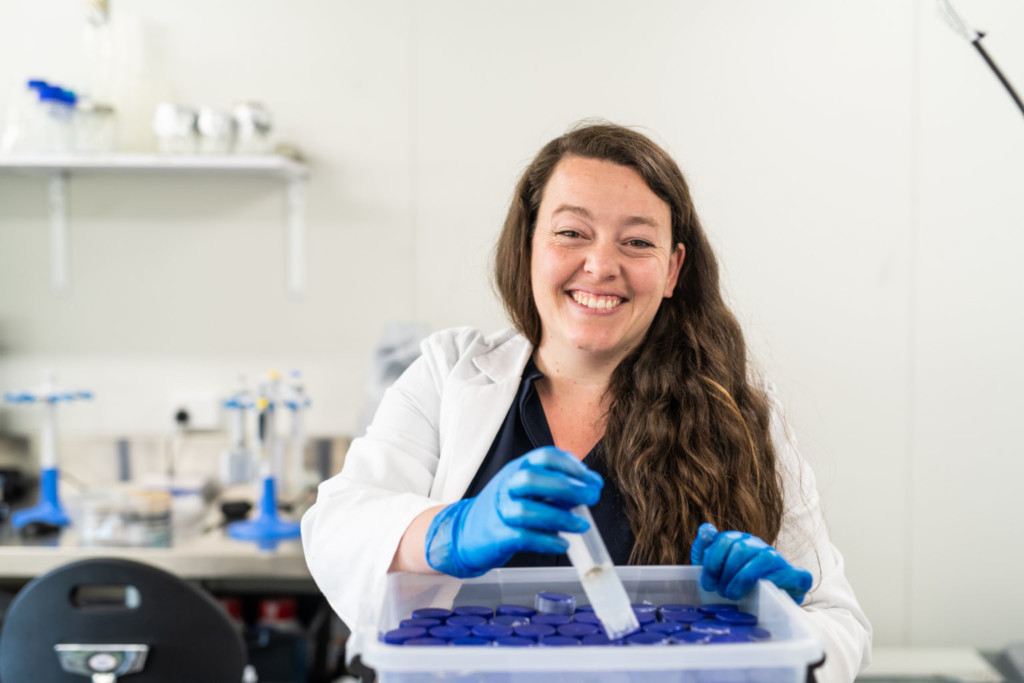
Tegan and her team work with specific endophytes that help to boost the natural biological processes of the soil using a microbial fungi coating that anchors inside plant roots, in a mutually beneficial relationship.
Endophytes are special, Tegan explained because they store carbon in a way that protects it from breaking down and being released back into the atmosphere via the carbon cycle.
“With climate change putting more and more pressures on growers, it’s imperative for Soil Carbon Co to deliver new technologies and be able to have new technologies and new tools in farmers’ hands.”
‘Ground truthing’ tech to drive on-farm adoption
Soil Carbon Co is trialling the technology across Australia and the United States to help increase the resilience of soils when growing crops like wheat, canola and soy. They can also allow farmers to trade a new commodity – carbon offsets.
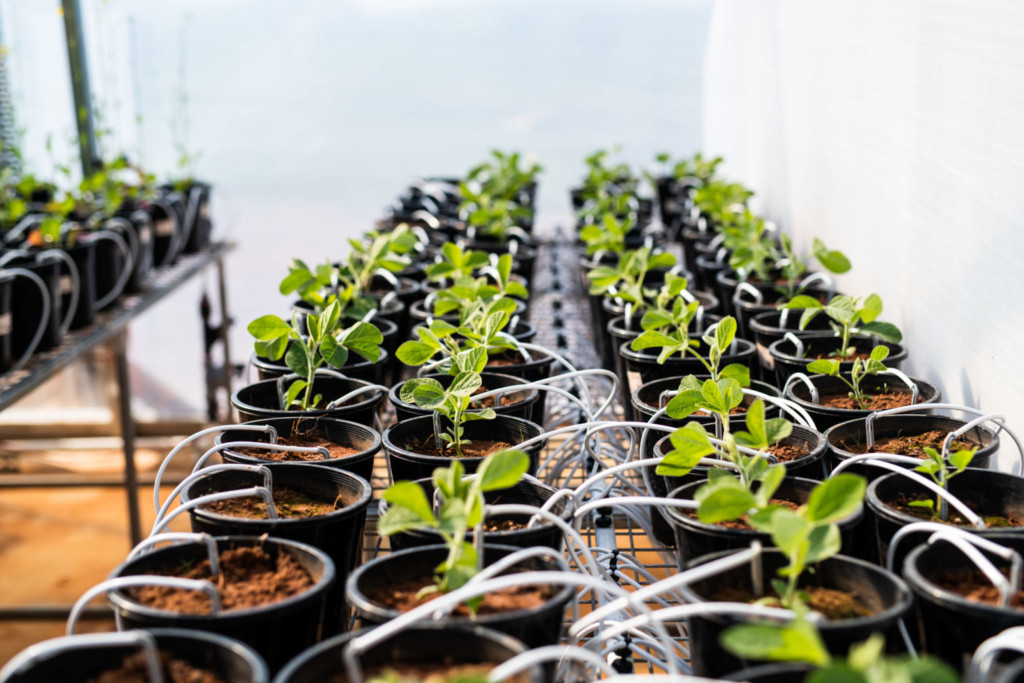
Tegan is working with an incredible team of dedicated microbiologists, geneticists and data scientists as part of the research program to test Soil Carbon Co’s microbial technologies in different environments.
From the lab setting a small cohort of strains are tested in pots as part of a greenhouse program. Then the strains are applied to crops in the greenhouse and the field to compare and identify the best performers.
Tegan and Brooke Bruning, research agronomist and fellow colleague visited one of their canola and wheat trial sites, near Forbes in NSW earlier this month to gather field data and samples (pictured below). This includes monitoring fertility, plant growth and protection against stresses such as disease, drought and temperature extremes.
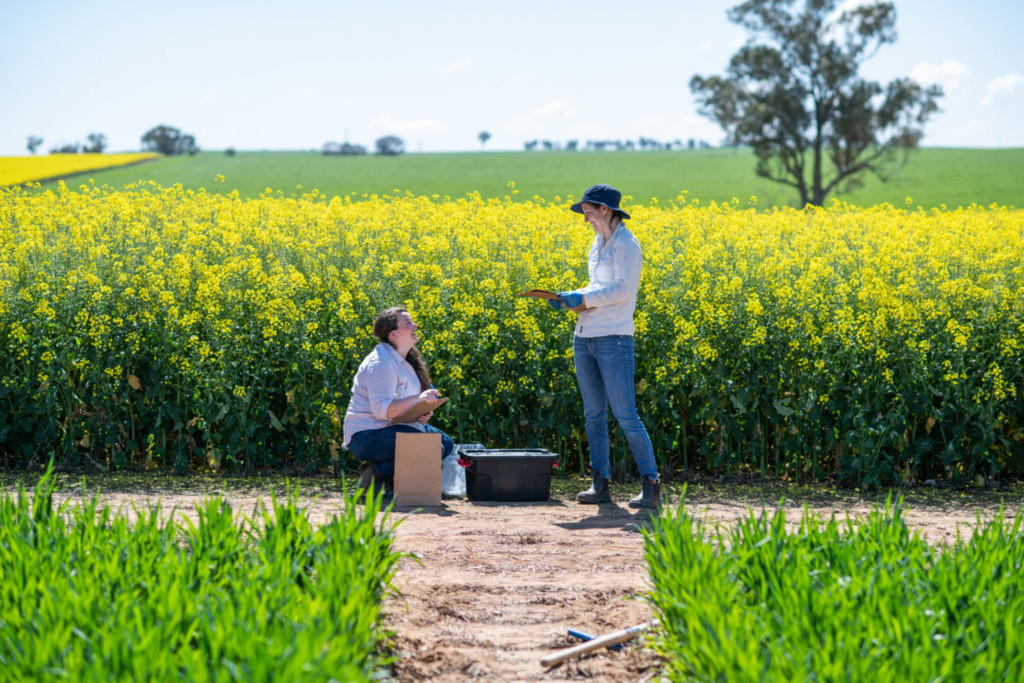
Growing appetite for carbon markets and a ‘second crop’
The current voluntary carbon offsets market is estimated at around $300 million, Tegan said but the regulatory markets and compliance markets are around $161 billion right now. So there’s a huge opportunity.
“Being able to harvest a crop off an area of land and then have a ‘second crop’ that’s underneath, that you can actually monetise and trade offers an angle for diversification and building economic resilience as well.”
“Everybody talks about diversification in agriculture as being one of the keys to success and being able to ensure that you’re spreading the risk.”
Tegan believes farmers shouldn’t have to lose something to diversify. “If we’re focusing on soil carbon, we’re able to diversify into the system because it’s an additive for growers to be able to monetise that carbon that they’re building in their soils.”

She added, “the key is the stability factor” – and that’s specifically the technology that they’re working on with Soil Carbon Co.
“It’s fine to build carbon in the system, but how do we do it in a really stable way that those growers can then trade.
The road to commercialisation
Soil Carbon Co are ensuring its products have at least two seasons of Australian field data across a range of agroecological zones to give growers confidence in the technology.
The future is looking bright with a $10m funding round, in late 2019, backed by Horizons Ventures, a global investor that has backed businesses like Zoom and Spotify, tech billionaire Mike Cannon-Brookes and the federal government’s Clean Energy Finance Corporation.
RELATED: Impact investing and how startups can cash in on capital
The agritech startup recently opened an office in the United States and is growing rapidly to mirror the work that’s happening in Australia.
“We’re developing products and ground-truthing them in US farming systems specifically, to be able to fall in line behind what Australia is doing there.”
Tegan adds they have plans to expand further and are working in a very targeted way to actively engage with organisations to be able to, “open up carbon trading for growers in a way that it’s much more accessible than it’s traditionally been.”
RELATED: Huon Aquaculture leads the way for low carbon seafood production
“I feel really lucky to be in a position where I am working across both research and agriculture at that interface between the two. I’ve just been blown away with the capacity in research across Australia and more generally as we move into international markets.”
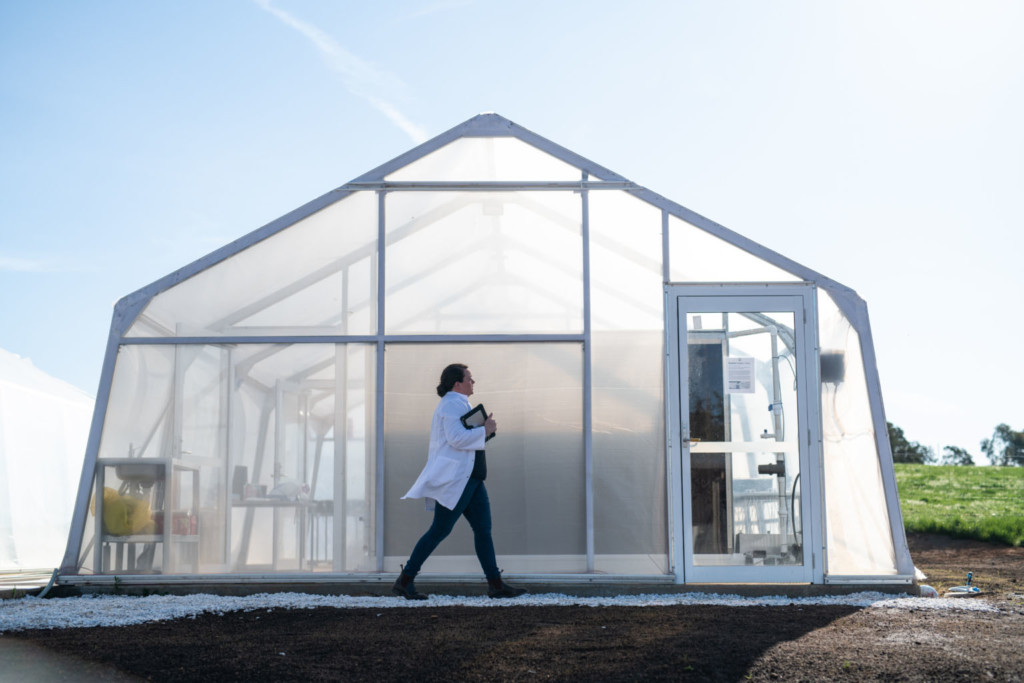
Tegan encourages young girls considering careers in agriculture to look to the people who they find inspiring.
“Seek them out, have conversations with them, engage with industry, find the right mentors for you, because agriculture really wants people and we need to build capacity.
We really enjoy new people coming in and I think that it’s a fantastic career to get into because it’s something that’s challenging. You’re learning every day and you can have a real-world impact, particularly in agricultural research.”
Enjoyed this story? Want to learn more about the Asia Pacific region’s innovative agrifood tech ecosystem? Sign up for our newsletter here and receive fresh stories about global leaders, farmers, startups and innovators driving collaborative change.
